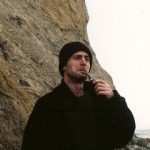Death of Antarctic writer Nicholas Johnson

Nicholas Johnson
Nicholas Johnson, author of Big Dead Place and a close friend, took his life on November 28, 2012. Nick’s death is a heartbreaking loss to his family, to his friends, and to so many of us that knew him as an essential part of the Antarctic community. He had a voice and a spirit unlike any I’ve known, equally cynical and generous, funny and soulful. I loved him and I miss him.
No one has done more to change the way we understand Antarctica. Nick was unflinching in his critique of bureaucracy and authority in the United States Antarctic Program, but mainly he sought to create a dialogue within and about Antarctica that cut through cliche and hypocrisy in order to describe things as they really are, in all their glory and strangeness. Not all his readers realize that Big Dead Place (both the book and the website), which can be both brutally honest and explicit, is first and foremost an expression of Nick’s love of Antarctica and of the people in the USAP. He loved the place so much that he wanted to make it better. And he did. There is nothing like Nick or his writing in all of Antarctic literature or history. Not many people can say they upended a continent’s literature.
I knew Nick very well. We were happy roommates for two seasons on the ice, and we rented a flat together in Christchurch, New Zealand, for several months while for 15 hours a day we both wrote and researched in Christchurch’s Antarctic libraries. There was hardly an hour in all that time together that we weren’t talking about Antarctica, past or present. Rozo, Byrd, Shackleton flowed seamlessly through our conversations about galley food or South Pole politics. No one will ever understand my Antarctic writing – my whole Antarctic obsession, really – better than Nick. And I watched in amazement during those Christchurch months while he transformed himself from a writer of zines and broadsides into a master of narrative nonfiction.
Nicholas was his usual kind and generous self up to the very end. He and I were corresponding until just a few days before his death about this blog, of which he is the architect, and about Hoosh; I took his silence in the final days to mean he was busy with other projects. He seemed upbeat. I wish I had realized that he was so overwhelmed by the pain of living that he was making his final plans. Like every one of his many friends scattered around the world, I would have dropped everything to save Nick. But I had no idea he would do this.
I won’t talk here of what might have driven Nick to take his life. His stints as a contractor in Iraq and Afghanistan probably darkened his thoughts, and certainly he was disappointed about being blackballed from his beloved USAP, but I assume his suicide has deeper roots than that. Whatever his rationale, he was wrong. Life without Nick in it is so much poorer, so much emptier, and I can’t help but think that his demons could have been driven out if he’d shared them with the right people. But he was as guarded about his inner life as he was fair and generous in his personal life.
If you’re reading this without knowing Nick’s work, go and read Big Dead Place and explore www.bigdeadplace.com. If you don’t know American Antarctica, it will be strange going at first. It might help to be familiar with Hunter S. Thompson’s writings on American culture and politics, but Nicholas Johnson was a better writer, I think. And if you really want to understand, go wash dishes in McMurdo or operate heavy equipment at the Pole and fall in love with the place, the people, and the absurdity of life in a big dead place. At some point, you’ll think the same thing I will for the rest of my life: Hey, I really wish I could talk to Nick right now.



